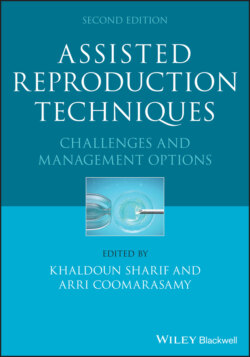Читать книгу Assisted Reproduction Techniques - Группа авторов - Страница 98
Answers to questions patients ask
Оглавление1 Q1. How can I find out the effect cancer treatment had on my fertility and what would be my options if I don’t go for fertility preservation? A1. We can do fertility tests, at least 6 months after cancer treatment is completed to assess your ovarian store of eggs. It should be remembered that it can often take longer than 6 months for the ovaries to recover their function. The ovarian function will depend on age, ovarian reserve before cancer treatment and the cancer treatment received. Based on your fertility potential, options could be natural conception, ovulation induction, IVF, treatment with donor egg or embryo, or surrogacy.
2 Q2 How often does oocyte cryopreservation result in a pregnancy? A2. Based on the available evidence, an overall 4% live‐birth rate can be expected per oocyte thawed following vitrification. So, multiple eggs will need to be stored to give a patient a reasonable chance of pregnancy. However, older women will require more frozen oocytes to achieve a live birth compared to younger women [22,23,24].
3 Q3 How long can my embryos be stored for and does the storage duration affect success rate? A3. In the UK, the standard storage period for embryos is 10 years; however, this could be extended for up to 55 years in certain circumstances. Available data showed that duration of storage has no negative effects on success rate [25].
4 Q4 I’m having pelvic radiation; what can I do to reduce its effect on my fertility? A4. The ovaries can be protected from radiation injury by moving them out of the radiation field through key hold surgery (ovarian transposition/oophoropexy) [26]. Natural pregnancies as well as pregnancies following IVF treatment have been reported following oophoropexy [27,28]. However, due to the potential effects of radiation on the uterus, surrogacy might be needed for some women.
5 Q5 Does OTC affect the well‐being of children conceived from this procedure? A5. It does not seem likely from the available evidence that OTC affects the well‐being of children born from this procedure [8].
